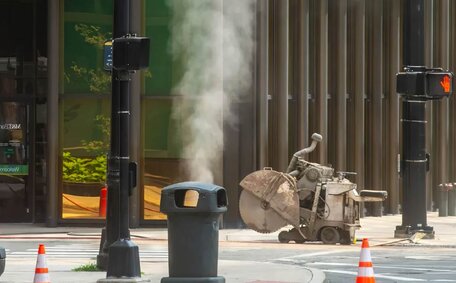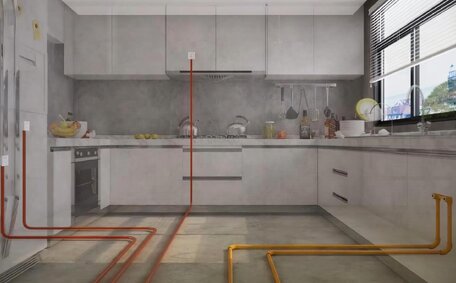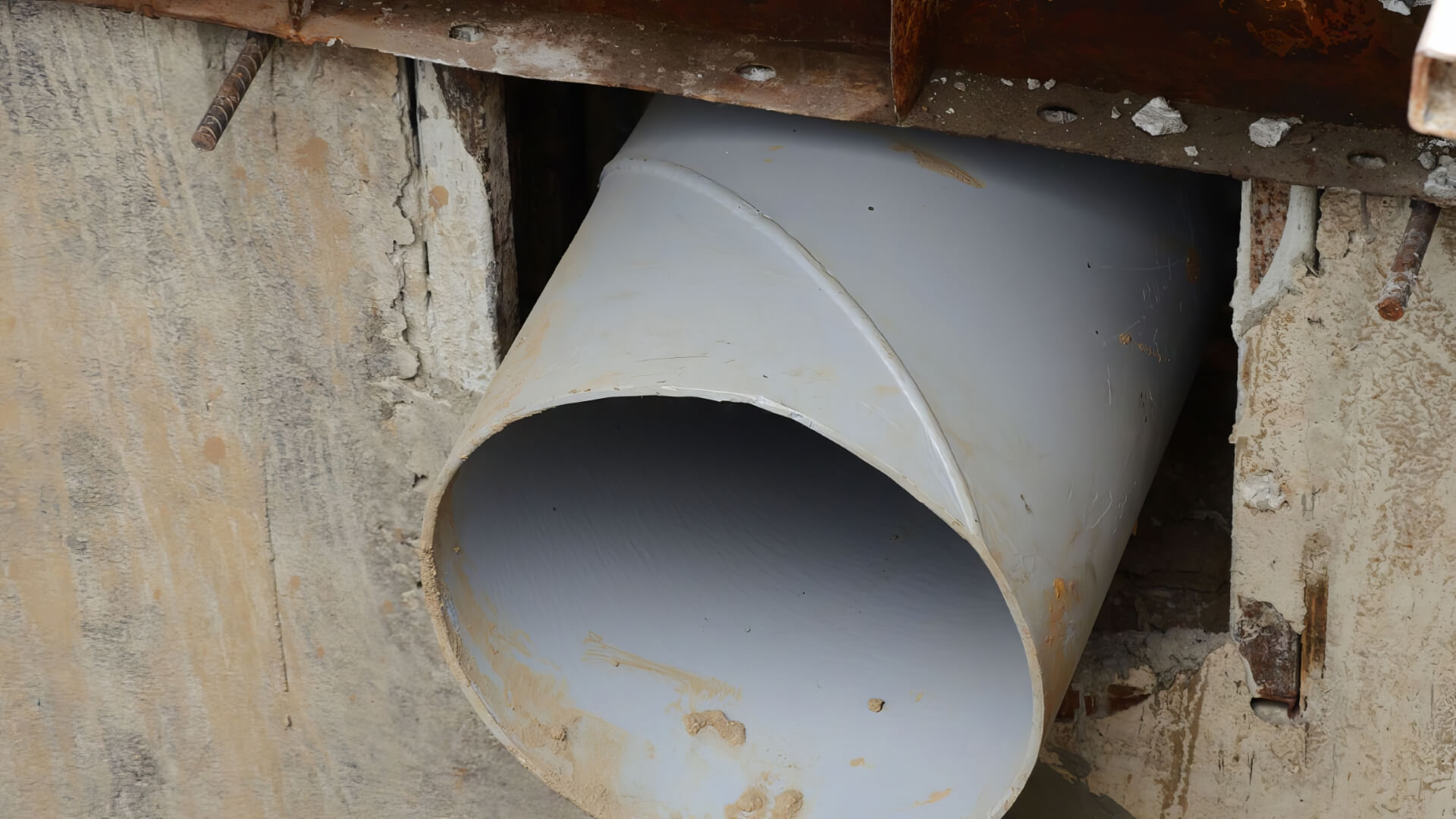Recognizing signs of a gas leak
Knowing the early detection steps for a gas leak is crucial for safety. Natural gas and lp gas, while commonplace in homes, can ignite and cause explosions, fires, carbon monoxide poisoning, and property damage if leaks are disregarded. Be alert for common signs of a natural gas leak:
- If you detect a natural gas smell, reminiscent of rotten eggs, it’s a definitive signal to investigate and detect a gas leak, owing to the odorant mercaptan infused in natural gas.
- Hissing whistling sounds emanating from gas appliances or compromised gas lines.
- Bubbles in standing water, indicating gas is escaping underground.
- Dying plants or increased gas bills may indicate a leak your garden or property could be experiencing.
- A visible white cloud or mist, which can signify a gas leak your property.
Perhaps it’s time to get your heater serviced if you suspect gas leak or if your heater is causing symptoms like dizziness, nausea, or flu-like symptoms; these may indicate CO poisoning stemming from incomplete gas combustion. If you suspect a leak, immediately evacuate the area, ventilate by opening doors and windows, call emergency services, and contact a licensed gas fitter. Early detection and prompt action on signs of gas appliance malfunctions can prevent leaks and the risk of ignition from sources such as sparks or flames.
Health risks of gas leaks and carbon monoxide exposure
Gas leaks in any commercial kitchen present serious health and safety risks, especially from exposure to carbon monoxide (CO) and nitrogen dioxide. At low concentrations, carbon monoxide exposure from your heater may resemble flu with headaches, dizziness and nausea. As levels rise in your building, CO replaces oxygen in the blood, leading to breathing difficulties, unconsciousness, brain damage and even death. Young children, unborn babies, elderly people and those with existing medical conditions are most vulnerable.
Indoor gas appliances can produce CO, one of the harmful combustion products, when burning incompletely due to faulty, damaged or poorly ventilated conditions.
Being colourless and odourless, CO accumulates indoors quickly and unnoticed, as it is lighter than air. Installing CO alarms is crucial, sounding the alarm before dangerous exposure occurs. Nitrogen dioxide is also produced by gas combustion and irritates airways. Combined CO and nitrogen dioxide exposure, particularly in homes that use natural gas appliances, exacerbates health impacts.
Any gas leaks detected in commercial establishments require urgent attention.
If you suspect your property has a leak when gas leak symptoms are felt, evacuate immediately, check gas appliances, call 000 and seek medical attention immediately. A licensed gasfitter should inspect any issues with your gas systems and ensure proper ventilation before reoccupation. Early intervention around gas appliances, including your gas oven, can save lives, with CO claiming over 50 Australian lives annually.
Using gas detectors and carbon monoxide alarms
Installing gas detectors and carbon monoxide alarms provides an essential early warning system, alerting occupants to negative pressure circumstances that could result in gas leaks or buildups of toxic CO gas before reaching hazardous levels. Ensuring compliance with the principles of gas safety practices, such as Australian Standard AS/NZS 4645, is essential for optimal safety and performance.
CO alarms should be installed according to manufacturer specifications in every room containing a fuel-burning appliance, such as your gas heater, space heaters, gas stoves, and hot water systems. For optimal safety, position alarms near gas sources for immediate detection and around bedrooms for continuous protection. For residents wanting to know how to detect gas leak, your defence includes positioning devices near potential sources like appliances, your gas lines, and your gas meter.
Keep your family safe by ensuring alarms and gas heaters are in working order, continuously monitoring air quality and sounding loud alerts when gas or CO levels exceed safe thresholds, signalling the need to evacuate and contact emergency services. Only working alarms save lives, thus installations in your home should be tested regularly by pushing test buttons to verify battery and sensor functionality.
When to call a professional
It is critical to contact a licenced professional gas fitter or plumber immediately if you recognise signs gas could be escaping due to a potential leak or appliance issue. Attempting DIY repairs can result in worsened problems and violate safety regulations. Professionals like those at Rouse Hill Plumbing bring extensive training and expertise to safely inspect, diagnose and resolve gas-related problems.
Technicians can assess your appliances, using advanced methods to identify gas leaks and determine necessary repairs. They can also service appliances, check exhaust fans, ensure adequate ventilation, and confirm homes meet gas safety codes. In case of a gas leak in your commercial space or residential area, or if physical symptoms appear post-repair, it’s essential to evacuate and contact emergency services.
Only licensed gas fitters are legally permitted to install, alter, test or repair gas infrastructure. DIY repairs risk fines, insurance issues and endanger occupants if incorrectly handled. For prompt, fully compliant assistance with any gas system problems, contact the professionals at Rouse Hill Plumbing on 1300 349 338 or email jobs@rousehillplumbingservices.com.au.
Safely troubleshooting common gas appliance issues
When troubleshooting gas appliances, remember these safety tips should always be the top priority. Always start by consulting the user manual for each appliance and following any troubleshooting tips from the manufacturer.
Begin with simple checks to understand what do gas appliances require when ensuring they are receiving gas properly and pilot lights stay lit. Check appliance burners visually, which can become blocked and use soapy water to test connections for leaks. Also confirm that each gas burner and its flues or vents are free of obstruction, not giving off gas inadvertently.
Rather than tampering with the appliance, turn off the gas valves if you suspect an issue. When needed, turn off appliances and ensure they are turned off at your gas supply valves if leaks or blockages are suspected. If in doubt, immediately call a licensed gas fitter like Rouse Hill Plumbing at 1300 349 338 for prompt assistance.
A licensed gas fitter can undertake extensive safety checks using gas detectors and advanced diagnostics to pinpoint issues. Only licenced gas fitters can legally confirm appliances are functioning safely and code-compliant.
Regular maintenance to prevent issues
Regular maintenance is crucial to ensure your gas infrastructure operates safely and efficiently in the long term. Gas fitters advise you can use this guideline: service heaters, stoves and hot water systems every two years, and gas pipework every 5 years.
During servicing, technicians thoroughly inspect components including the heat exchanger for gas leakif or other issues, corrosion, blockages and other problems using advanced diagnostic tools, demonstrating what gas maintenance checks entail. Any worn parts that may become blocked are proactively replaced to prevent potential hazards. They also clean all burners and vents to optimise combustion and energy efficiency.
Neglected maintenance of your gas stove realizes the risk that gas leaks can cause, including carbon monoxide exposure, fires or explosions. It also shortens appliance lifespan and increases energy bills unnecessarily. Technicians ensure appliances comply with Australian Standards and adequate ventilation is in place, which are critical in preventing issues.
For compliant servicing of flued gas heaters as well as their risky unflued gas heaters, Rouse Hill Plumbing are available on 1300 349 338. Investing in periodic maintenance of open flued gas appliances enhances safety and saves money long-term by avoiding emergency repairs.
Understanding legal and safety requirements
The safe use of gas appliances and infrastructure in Australia are governed by strict safety regulations under national and state laws. For safety, These laws clearly stipulate that issues can occur if anyone besides licenced gas fitters legally installs, alters, repairs, tests or inspects any gas installations or appliances.
Adhering to gas safety laws is critical. Using unqualified tradespeople also violates regulations, jeopardising insurance coverage and warranties.
Legally, to find out more about their qualifications, gas fitters must verify by producing a licenced worker card. They must also provide a Certificate of Compliance after any gas installation work, detailing the job and confirming it meets all Australian Standards for materials and workmanship.
For legal servicing on gas lpg systems, Rouse Hill Plumbing are fully licenced and insured. Contact us on 1300 349 338 for peace of mind gas repairs are regulation-compliant.
What to do in a gas emergency
In the event of a suspected gas leak or emergency, safety should be the top priority. Evacuate all occupants immediately and assemble in a safe, upwind location if you suspect a natural LP gas leak. Call 000 to request emergency services and provide details on the type gas, location, and potential leak source if known.
If safe to do so, turn off your gas supply and call licensed gas professionals at the main isolation valve using a quarter turn vertical motion. be sure to call your gas supplier and a licensed emergency plumber, keeping their details handy to notify after evacuating. Do not turn any electrical switches on or off, smoke or use naked flames which could ignite leaking gas.
Restrict access to the site and advise neighbours to evacuate until emergency teams confirm it is safe to re-enter. Do not attempt to find or fix leaks yourself or reoccupy buildings where there’s no clear sign that the gas odour has dissipated. licenced technicians have specialised leak detection tools and will ensure there no issues with your gas line and other infrastructure before restoring them for use.
During repairs, even those involving a simple gas cylinder, request a Certificate of Compliance to guarantee work meets all Australian Standards. For emergency or general gas servicing call Rouse Hill Plumbing on 1300 349 338.






